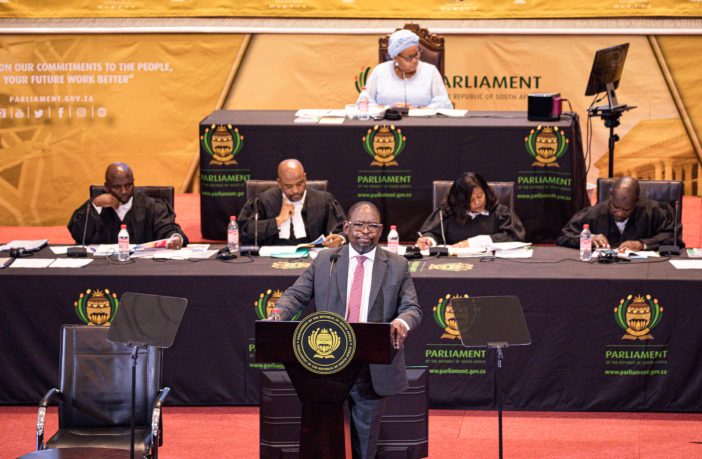- More than 60 municipalities who owe Eskom for unpaid bulk electricity services have applied for government’s debt relief arrangement.
- Yesterday, Eskom reported a record net loss of R23.9 billion. Read more
- Arrear municipal debt has escalated out of control to R58.5 billion this year up from R44.8 billion in 2022.
This was revealed by Finance Minister Enoch Godongwana while delivering the Medium Term Budget Policy Statement (MTBPS) in Parliament on Wednesday.
“By October 2023, 67 applications had been submitted, totalling R56.8 billion or 97 % of total municipal debt owed to Eskom at end-March 2023. Twenty-eight applications have been approved; the remainder are being assessed and verified with provincial treasuries,” Godongwana said.
The programme was announced earlier this year to assist ailing municipalities who are struggling to pay their electricity bills. “The debt-relief arrangement for Eskom outlined in the 2023 Budget noted that a large proportion of outstanding municipal debt is owed to Eskom. National government has introduced support to relieve municipalities of debt to Eskom. The debt…will be written off over a three-year period, in equal annual tranches. This is provided the municipality complies with set conditions. These conditions include enforcing strict credit controls, enhanced revenue collection [and]up-to-date payment of Eskom monthly current account,” said Godongwana.
“The ultimate goal is the profound transformation of these municipalities, by empowering them to build financial resilience, amplify their capacity to generate sustainable revenue, and rekindle a culture of paying for services rendered,” Godongwana added.
Eskom Debt Relief Amendment Bill
At the delivery of the MTBPS, Godongwana also tabled the Eskom Debt Relief Amendment Bill which seeks to enhance the “enforceability of the conditions agreed” under the R254 billion government to Eskom debt relief agreement.
“It provides for the payment of interest by Eskom on amounts advanced as part of the debt relief loan. The Amendment also provides for the reduction of the amount of debt relief available to Eskom, in the event that the entity does not comply with the National Treasury conditions.
“These principles and strict conditionalities, greatly enhanced by the Amendment, are a key part of how we will deal with Eskom and all other state-owned entities, to avoid a repeat of the mistakes of previous bailouts,” Godongwana said.
Meanwhile, the extended MTBPS says Eskom’s R254 billion debt relief has been incorporated into both the balance sheets of government and Eskom – “implying an increase in government debt”.
“As at 30 September 2023, government has disbursed R16 billion of the R78 billion debt relief for 2023/24. A task team has been established with officials from the National Treasury, the Department of Public Enterprises and Eskom to monitor compliance with the conditions and report quarterly on whether Eskom qualifies for the conversion of the loan to equity.
“This [debt relief]arrangement will enable the utility to undertake much‐needed maintenance and investment, and to improve its financial position. Eskom’s financial sustainability remains at risk from poor generating plant performance, declining sales, lack of cost‐reflective tariffs, rising municipal arrears and high debt‐service costs,” the policy statement noted.
Author: Bryan Groenendaal











